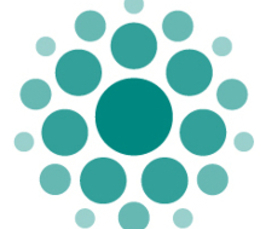Conference science communication: creating and presenting a research story
Conference science communication
- Beginn: 31.07.2019 09:00
- Ende: 02.08.2019 17:00
- Vortragende(r): Dr. Nora Carlson
- Nora is a Marie Curie Individual Research Fellow in Prof Iain Couzin's Collective Behavior Group at the Max Plank Institute for Ornithology and the University of Konstanz. Her project will investigate how birds use visual and vocal information to coordinate group movement and maintain group cohesion. She will also test how these methods of maintenance and coordination are affected by different visual and acoustic environments, to determine the effects of anthropogenic noise on flocking behaviour in birds.
- Ort: MPIO Möggingen
- Raum: MaxLounge
- Gastgeber: IMPRS for Organismal Biology
- Kontakt: mhieber@orn.mpg.de

This workshop is a 3-day joint workshop focusing on both poster and talk construction. The first day will focus on developing a set of skills / guidelines for making scientific posters, both the visual aesthetic and the poster content, as well as some tricks that can help get your science out there. During the second and third day we will move on to learning strategies for designing, structuring, and presenting a conference talk, focusing on the presentation itself: the contents, structure, and aesthetics of the slides, as well as what to say when presenting your slides. During the first day every individual will create a poster, have it critiqued, and critique others. During the second day every individual will create a talk, and then on the third day present their talk, have it critiqued, and critique others. This means that every participant will need to come to the workshop with something they want to turn into a poster and talk (the same can be used for both) either their own work or a paper they enjoy.
While daunting, presenting and having your work critiqued and critiquing others’ is an effective way to learn how to make talks and posters better. By first critiquing the instructor’s poster and talk participants will learn how to assess posters and talks and how to give constructive feedback (both positive and negative feedback in a helpful way). By examining others’ presentations and posters for both good and bad aspects you can learn how to see those aspects in your own work and continue to improve your presentations and posters. Therefore, it is important to participate in this class by presenting, and both receiving and giving honest critiques.
While I recommend attending both the poster and talk workshop portion as the strategies used for both are a bit different, either can be taken separate from the other.
If you decide to attend this workshop you will need to bring the following items:
- · A computer capable of using software to make a poster/presentation (i.e. PowerPoint, Keynote, etc.)
- · Original research that is complete enough to present (even if you don’t have results, we can still work with that), or a paper you want to make a poster about
- · Your willingness to participate as this will be an interactive class